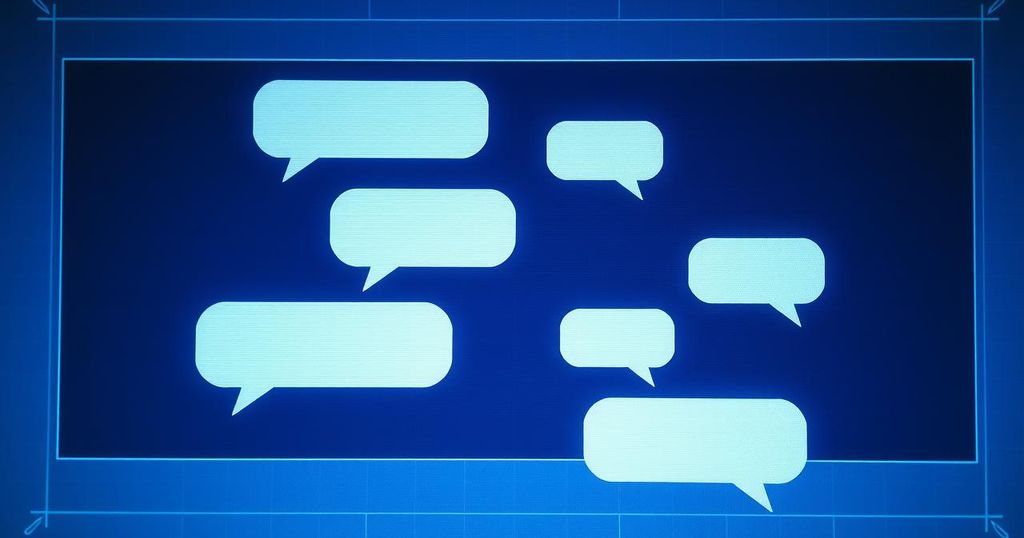Trump Dismisses Fallout from Leaked Signal Chat on Yemen Military Plans

President Trump has downplayed the fallout from a leaked Signal chat discussing potential military actions in Yemen, asserting that no classified information was shared. Despite Democratic leaders calling the conversations reckless, the administration defends itself against claims of a national security breach, focusing on the alleged flaws of communication technology.
In the aftermath of a leaked Signal chat concerning potential military actions in Yemen, President Donald Trump has minimized the repercussions, asserting that no classified information was shared. This follows critical remarks by Democrats, who labeled the discussions as reckless. The internal conversation involved high-ranking officials, including Vice President JD Vance and Secretary of Defense Pete Hegseth, weighing the implications of bombing Houthi fighters amidst concerns over sensitive data being discussed on an unsecured platform.
Trump addressed the issue during a meeting with U.S. ambassadors, stating, “There was no classified information, as I understand it,” and indicated that no punitive measures would be pursued regarding the incident. He characterized the situation as a benign error, emphasizing the need for caution in technology use. Conversely, critics highlighted the danger posed by the potential exposure of military plans.
Senator Mark Warner described the discussions as “sloppy” and alarming, arguing that sharing such information could compromise American lives if intercepted. This sentiment was echoed by Senator Ron Wyden, who condemned the actions as “obviously reckless”. Calls for accountability included demands for resignations from top officials involved in the discussions.
Goldberg’s article in The Atlantic provided insight into the chat, revealing that high-level officials deliberated not only on the military actions but also on potential economic advantages for Europe. The portrayal of Europe as “freeloading” and a discussion surrounding the timing of the strikes has created further tensions among U.S.-European relations. Trump, during his remarks, reiterated his belief that Europe benefits unduly from American military might but also defended the integrity of his administration’s national security policies.
The administration has vehemently denied any breach of national security, claiming that no top-secret information was shared during the chat. Press Secretary Karoline Leavitt asserted, “No ‘war plans’ were discussed. No classified material was sent to the thread,” disputing the severity of the claims made in Goldberg’s article. However, Warner’s insistence on transparency regarding the chat’s contents reflects the ongoing concerns about the handling of classified information in government communications.
Ultimately, this incident underscores the delicate balance between the necessity of military discussions and the protocols intended to protect sensitive information. While some officials have faced intense scrutiny for their roles, the administration’s position remains defensive, with Trump suggesting that technological flaws facilitated the leak, rather than any wrongdoing by his team.
In conclusion, the controversy stemming from the leaked Signal chat regarding military operations in Yemen has sparked significant discussion about the handling of classified information within the Trump administration. With key Democratic figures condemning the actions as dangerous and careless, and the administration defending itself against allegations of breaches, the incident has raised critical questions about security protocols. This situation illustrates the complexities and risks inherent to utilizing non-government communication platforms for sensitive discussions among government officials.
Original Source: www.aljazeera.com







